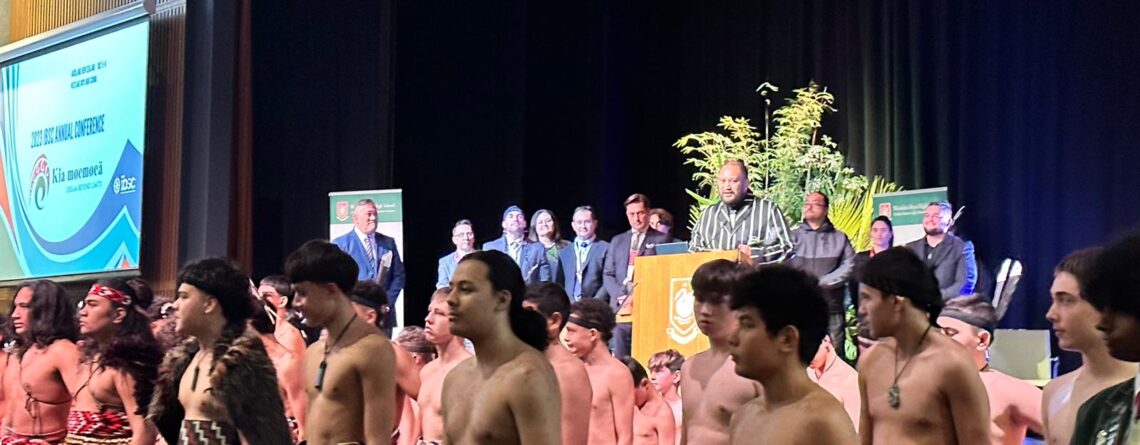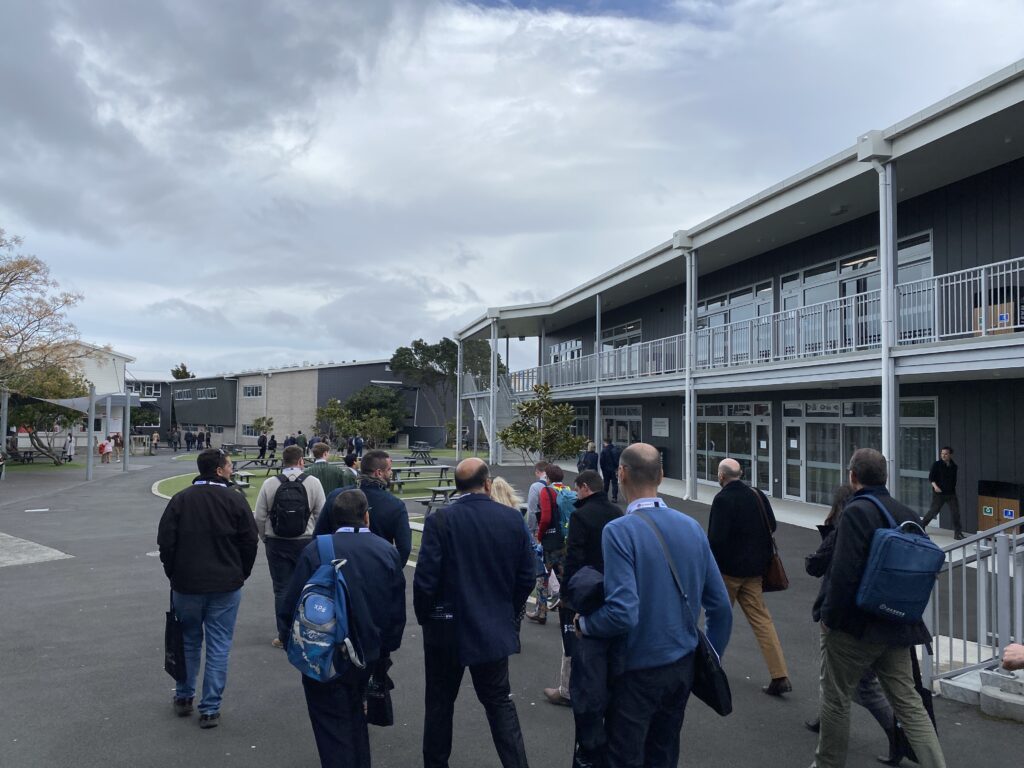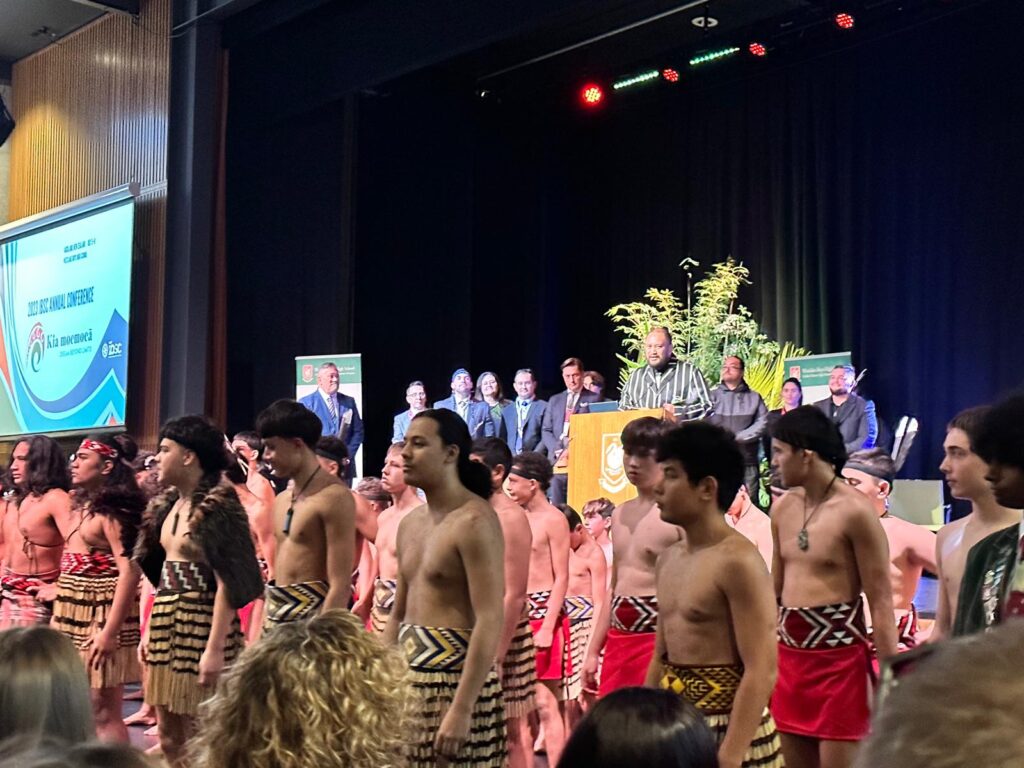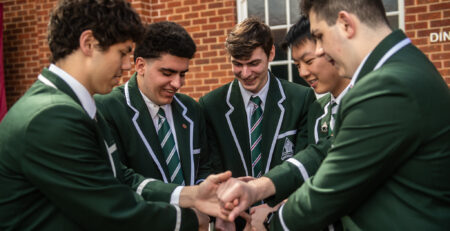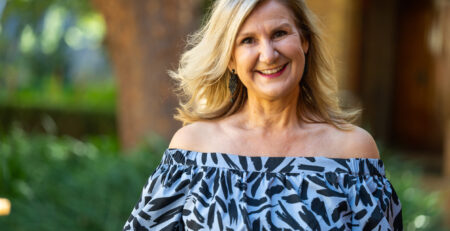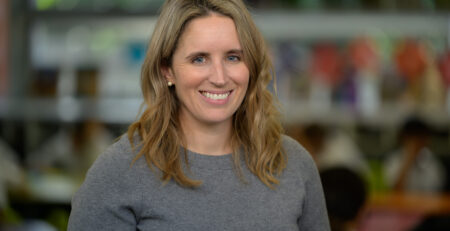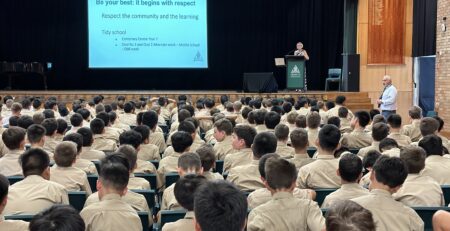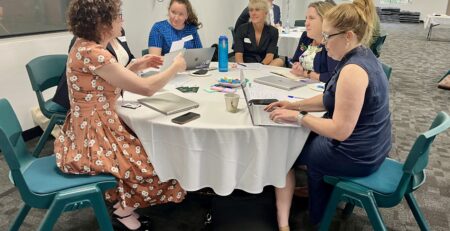Trinity at the 2023 IBSC Conference
For teachers at a large Pre-K–12 independent boys’ school like Trinity Grammar School, professional conferences that bring together colleagues from other boys’ schools internationally are invaluable.
The opportunity to hear about practice and leadership in other schools, to be inspired by research-informed innovation, and to expand global networks are created through conference participation. New ideas are sparked, thoughts are exchanged, and connections are made and strengthened.
During the recent winter school holidays, a small delegation of Trinity staff – Headmaster Mr Tim Bowden, Director of Research Dr Kimberley Pressick-Kilborn, Middle School Head of Taubman House Dr Rachel O’Brien, Field Studies Centre Academic Program Coordinator Ms Leah Arthur, and Year 3 Preparatory School teacher Ms Nadene O’Neill – travelled to Auckland, New Zealand to participate in the four-day 2023 Annual Conference of the International Boys’ Schools Coalition (IBSC). The conference challenged delegates to ‘Dream Beyond Limits: Kia moemoea’, and encouraged attendees to reflect on opportunities being created for students to do the same.
Rachel, Leah and Nadene are participants in the Action Research Program of the IBSC which promotes collaboration amongst a cohort of educators worldwide, providing support to undertake a research project in the context of Trinity. All projects are linked by a common focus or theme; for example, the 2022-2023 cohort addressed the issue of ‘Shattering Stereotypes: Helping Boys Cultivate Healthy Masculinity’.
This year, Trinity’s Dr Rachel O’Brien presented the findings of her project, Connectedness Conversations: Applying positive masculinity theory to build boys’ strengths. Rachel’s project drew on her previous doctoral research findings, as well as the wider literature, to inform the design of an intervention, which she piloted with her Year 9 tutor group. Her conference presentation was well-received, with great interest in her ‘Three Cord Model’ for developing boys’ key strength of connectedness: the intertwining of experiences, feelings, and masculine norms. Rachel’s report can be accessed on the IBSC website.
As members of the current cohort, Leah Arthur and Nadene O’Neill will be undertaking action research projects that address the 2023-2024 theme of ‘Balanced Boys: Promoting Healthy Masculinity Beyond the Classroom’. Prior to this year’s Auckland conference, Leah and Nadene participated in workshops to develop and hone their research skills. They will now undertake their projects with the support of their IBSC mentor and Trinity’s Dr Kimberley Pressick-Kilborn. Their research will be presented at the 2024 IBSC Annual Conference in London, which they will attend with the support of a Trinity Pollock Grant for Professional Learning.
Other highlights at the 2023 IBSC Conference included plenary sessions presented by outstanding New Zealand educators such as Ms Susan Hassall and Ms Mina Pomare-Peita. Interactive workshops on varied topics relating to supporting boys to thrive in boys’ schools were included throughout the program, presented by a range of school educators and leaders from around the world.
The Conference was held at Westlake Boys High School, one of New Zealand’s largest schools. The students and staff within the school community warmly welcomed delegates to the school with a Maori welcome, musical performances, a rugby match, and tours of the school.
Trinity Headmaster, Tim Bowden, reflected on his experience at the conference in New Zealand, saying he was pleased to discover that the increasing challenge to the legitimacy of boys’ schools currently encountered in Sydney and wider Australia is not universal. “We have recently seen repeated assertions that there is something fundamentally deficient about single-sex schools (for boys). It is suggested that such schools are inevitably and necessarily shaping boys who will be problematic for our society, rather than positive contributors. I do not believe that this is the case, and it was refreshing to spend time with other educators who hold similar convictions.
“It was striking to learn that the animosity that we face in our context is not experienced elsewhere. In New Zealand, for example, boys’ schools are accepted and highly valued for the distinctive ways that they can create positive culture and expectations around masculinity, endeavour, and social responsibility. This discovery gave me hope that the current wave of vocal opposition in wider society will crest and diminish.”

